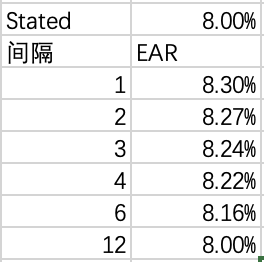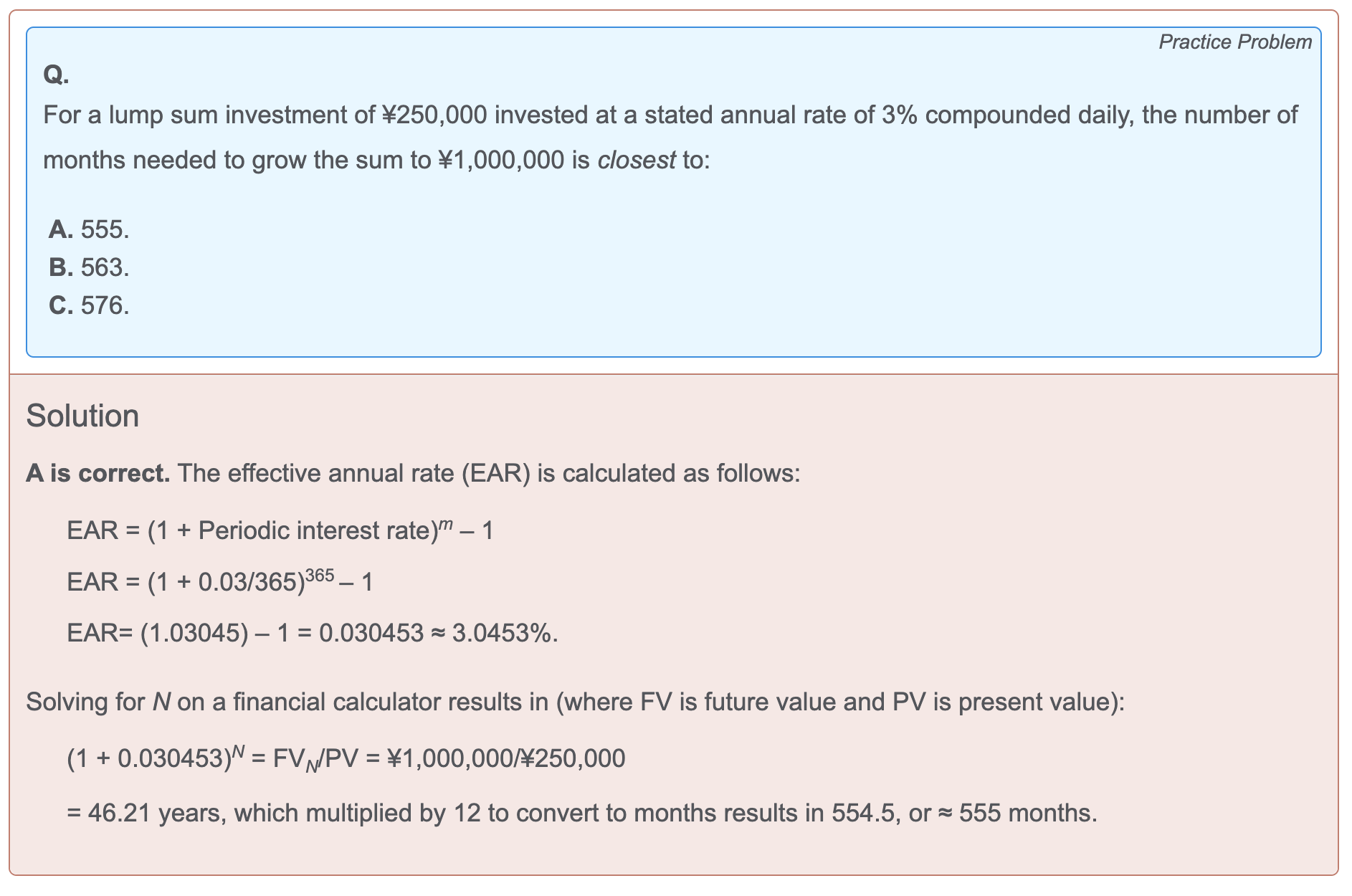Interest rate
有三个角度去理解:
- Required rates of return:使得投资者选择这项投资所需要的rate
- discount rate:使得FV折现后等于PV的rate
- opportunity costs:如果投资者现在consume了这笔钱(而不是invest的话)所损失的rate
有五个构成部分:
- Real risk-free interest rate
- Inflation premium, 加上第一个就是nominal risk-free interest rate。比如美国国债指的就是这种
- Default risk premium
- Liquidity premium,可以理解为“容不容易卖出去”,容易卖就低,难卖就高
- Maturity premium,期限越长market value对市场利率的变动的敏感性越高
对于公式
如果m趋向于∞,就叫做continuous compounding,公式是:
EAR
多数时候标明的(stated)利率都是年利率,但是如果compound period不是1年,effective annual rate (EAR)就会不同,比如:
对于continuous的:

现金流
常见名词:
- annuity(年金) 1
- ordinary annuity:a first cash flow that occurs one period from now的年金
- annuity due:a first cash flow that occurs immediately
- perpetuity:永久年金(但是一个周期之后才会出现第一次付款)
annuity due的折现次数会比ordinary annuity少一次。
Ordinary Annuity
通用公式:
如果每年的金额
PV就是反过来算。
perpetuity
如果开始时间不是今天(t=0),比如t=2才付第一次,那就先用公式算t=1的时候的perpetuity的PV,然后再将那个PV再折现回t=0。
A和r是要相同周期的,比如A是季度付,那r也要用年利率除以4
FV、PV、annuity等价性
只要站在同一个时间点上来计算,FV、PV和年金就是等价的。由此也就有了The Cash Flow Additivity Principle:the idea that amounts of money indexed at the same point in time are additive。
经典题目
两个perpetuity,但是买的是t=1付第一次,发行的是t=5付第一次,金额相同。由于前四期存在现金差值,类似于ordinary annuity,所以存在PV可以算。
将PV和FV改成某两年的销售额,计算compound growth rate。
贷款,给出现在要借的钱(PV),给出年利率,给出compound方式(比如月),给出年限,求月供。(等同于问年金的金额是多少才能让PV等于现在要借的钱)。 3注意,对于这种计算PMT的,需要设置BA II Plus的C/Y和P/Y,否则算的是不对的。
这个题要先算出EAR然后再算年然后年除以12得到月,不能够算天然后折算成月。

BA II Plus的年金PV和FV计算
期数N,利率I/Y(输入就是百分比,比如8%就输入8):
- 算PV,就输入PMT(每年付款),然后FV输入0
- 算FV,就输入PMT,然后PV输入0
- 算PMT,记得PV和FV的符号不能一样
题目:
Jill Grant is 22 years old (at t = 0) and is planning for her retirement at age 63 (at t = 41). She plans to save
100,000 per year for 20 years, with the first retirement payment starting at t = 41. How much must Grant save each year from t = 16 to t = 40 in order to achieve her retirement goal? Assume she plans to invest in a diversified stock-and-bond mutual fund that will earn 8 percent per year on average.
提示:可以站在t=15或者t=40两个节点来计算;任意时间点上,之前的钱的FV要等于未来的钱的PV。